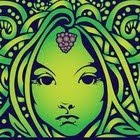
Nenad Milosavljevic was a 1970s hippie-influenced singer/songwriter who also composed music for theater plays. In 1977, together with a group of backing musicians, formed GALIJA (Eng. "Galley") in his native town Nis (pronounced: "ni:sh", former Yugoslavia, presently Serbia and Montenegro), named after the coffee bar where they used to hang around. They were notorious for the frequent line-up change, so besides N. Milosavljevic more or less standard band members were: Predrag Milosavljevic (Nenad's brother) who wrote most of the lyrics in the early phase and sang backing vocals, drummer Boban Pavlovic and bass player Zoran Radosavljevic. In the later phase, Radoman Kanjevac contributed with concepts and lyrics, Bratislav Zlatkovic with keyboards and flute playing along with composing, while Nenad also frequently engaged guest musicians, particularly keyboard and guitar players. In the early 1980s GALIJA was among the most popular bands in ex-Yugoslavia. It can be attributed to the sophisticated (although sometimes not too original) and "theatrical" prog rock songs, while their concerts showcased a somewhat "Baroque" and pirate look/galley outfit, along with Nenad imitating the stage movements of Ian Anderson of JETHRO TULL (only instead of flute Nenad occasionally played harmonica). They used to spend summers on the Adriatic Coast, with the town of Makarska (presently Croatia) being a sort of GALIJA fans pilgrimage site with free open-air gigs. From the mid-1980s onward, the band shifted musical direction towards more polished (and less "rocking") art pop-rock with occasional fusion of the Balkan folk themes and frequent use of celebrated South Slav poetry for the song lyrics. The band gained bad reputation when at one time in mid-1990s they collaborated with the autocratic Serbian regime, playing in support of the Establishment ideology. During their career GALIJA remained loyal to the state-owned music label PGP. They are still active in the new millenium and occasionally release albums of the more "mainstream" sound.
First three albums - "Grupa Galija" (often referred to as "Prva plovidba" although such title is missing from the cover!), "Druga plovidba" and "Ipak verujem u sebe" - are generally considered to be the best, given their symphonic prog sound, with characteristic interplay between acoustic and electric passages, atmospheric keyboards, strong and expressive vocals of Milosavljevic brothers and themes filled with romanticism and fairy tale-like lyrics. Obvious influences to the GALIJA music were CAMEL, GENESIS and JETHRO TULL on the prog side, but also THE ROLLING STONES on their rock side (blues-sounding harmonica!). These albums, although not so strong as some other ex-Yugoslavian bands of the era, are recommended listen for prog lovers. The first two albums are released under the name "GRUPA GALIJA", while from the third on they dropped "Grupa" from the name.
by Sead S. Fetahagic
 One of the best hidden treasures of German early 1970s psych Krautrock private pressings! The only LP from this young 6-piece group (3 brothers and friends) from Hof (Bavaria), 9 great songs full of haunting melodies, swirling, wailing Farfisa organ, guitars, sparkling piano, bass and drums, and - in opposite to most other private Krautrock LPs - superb vocals. The dark echo-ey / reverb-laden sound sometimes reminds me of Mary Butterworth and gives this LP this particular spine-chilling, goosepimples-producing feeling of those magnificent 1960s psych-garage ballads. By lyrkoss
One of the best hidden treasures of German early 1970s psych Krautrock private pressings! The only LP from this young 6-piece group (3 brothers and friends) from Hof (Bavaria), 9 great songs full of haunting melodies, swirling, wailing Farfisa organ, guitars, sparkling piano, bass and drums, and - in opposite to most other private Krautrock LPs - superb vocals. The dark echo-ey / reverb-laden sound sometimes reminds me of Mary Butterworth and gives this LP this particular spine-chilling, goosepimples-producing feeling of those magnificent 1960s psych-garage ballads. By lyrkoss




































































